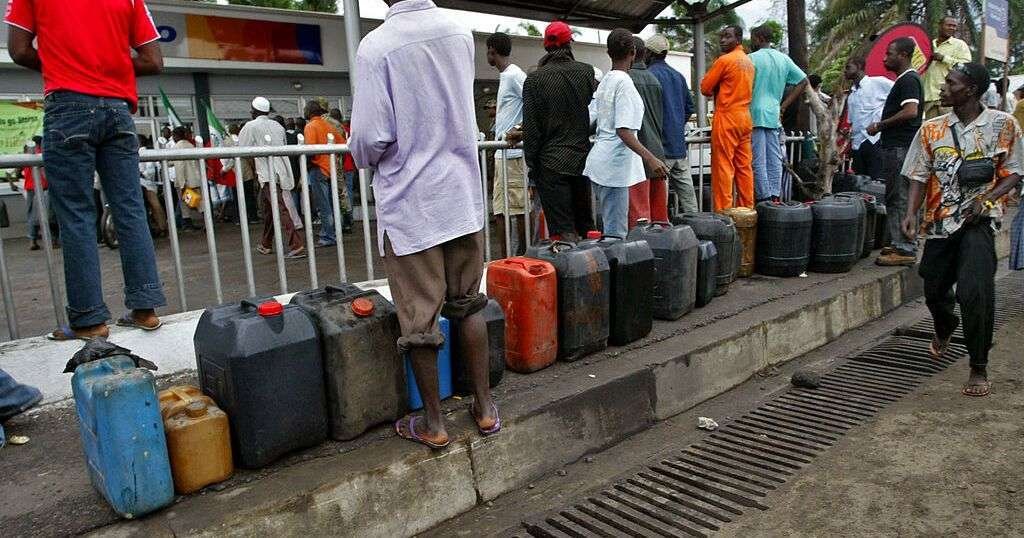Abuja, Nigeria – (African Boulevard News) – The Nigerian economy is facing another round of fuel shortages as the government begins the removal of fuel subsidies. On social media, many Nigerians had posted videos of filling stations already increasing prices, in some cases by more than 200%. The recent incidents have caused widespread concern amongst the people, who have been hit hard by the pandemic-induced economic crisis.
The fuel subsidy removal, which was initially introduced to ease the burden on consumers, has become a significant liability to the Nigerian government. Despite claims by the government that the removal will boost investment in the oil and gas sector, the move has seen little impact on the sector’s growth. The removal has also sparked protests in the past, with many Nigerians calling on the government to reconsider.
The Nigerian National Petroleum Corporation (NNPC) had recently announced that the government would no longer pay subsidy claims to oil marketers, as it had become unsustainable. This decision has provoked a sharp increase in fuel prices, with some filling stations charging as much as ₦300 per litre.
The removal of the subsidy has also affected the transportation sector, with some transport workers protesting the increase in the price of fuel. “The removal of fuel subsidies has crippled the transport sector,” said Dauda Manu, a transport union leader. “We are now left with no choice but to increase our fares, which will ultimately affect citizens who are already struggling to make ends meet.”
The Nigerian government has, however, remained firm on its decision to remove the fuel subsidies. According to the Minister of Finance, Budget, and National Planning, Zainab Ahmed, the government has no plans to reconsider the decision. “Nigeria has no choice but to stop the bleeding from the over ₦1 trillion annual subsidy payments that were essentially benefiting the rich and fuel smugglers,” she said.
Unfortunately, this decision has not been well received by the masses, who have borne the brunt of the economic downturn and now face higher fuel prices. The removal of subsidies has also left many wondering why the government has not invested in other areas to increase revenue, rather than removing subsidies that have a direct impact on the people.
In conclusion, the removal of fuel subsidies in Nigeria has brought about widespread concerns and raised questions about the government’s decision. Despite claims by the government that it would boost investment in the oil and gas sector and reduce corruption in the subsidy system, the removal has caused fuel prices to skyrocket, leaving many Nigerians struggling to make ends meet. The government must adopt more sustainable and equitable measures to deal with the economic challenges facing the country.

